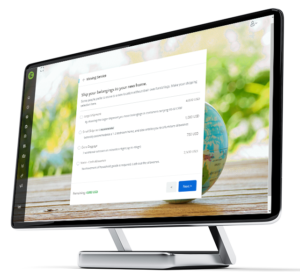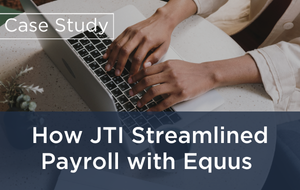
Many global mobility teams are already seeing the productivity and efficiency benefits of using technology to manage their workforces. But having abandoned spreadsheets and manual processes, what’s next for businesses?
How can they get more out of the data they collect on employees to further automate workflows and free up team members for high-value tasks, while improving the employee experience of preparing for and carrying out assignments?
IBM, an Equus AssignmentPro customer since 2018, is taking advantage of artificial intelligence to push the boundaries of what technology can do for global mobility teams. It’s created an innovative app that combines the artificial intelligence of IBM Watson with the data-analysis capabilities of AssignmentPro to provide a responsive, personalized service that’s getting better with every assignment.
One app that’s flexible enough to meet everyone’s needs
Called Your Global Mobility Advisor (YGMA), IBM’s self-service app allows employees to easily manage the budget and logistics of global assignments and moves.
After employees enter details of the assignment-such as location and duration-Watson instantly creates a recommended plan with a budget and set of allowances or provisions.

Employees can then customize the recommendations, such as opting out of a pet shipment, increasing the size of their shipping container or choosing a lower-cost housing option.
This ability to tailor the plan improves worker satisfaction while freeing up GM staff from the time-consuming task of administering exceptions. This means they can focus on higher-touch activities, such as building relationships across the business and spending time with employees to discuss housing options, or explain the culture of a new location.
“Everyone has different needs and wants, so it’s very hard to fit people to one plan or policy,” says Paul Gucciardi, IBM project manager. “We wanted to move to a greater degree of flexibility, so we tried to customize our plans and our policies, make the budget more personalized and reduce the number of exceptions.”
The policy recommendations are based on historical data from AssignmentPro and current data from the YGMA app. Watson learns from new data, so the more information added each time the app is used, the more accurate its recommendations become.
If employees find Watson’s suggestions too limited, IBM offers human backup through a help desk where GM team members are available to help out with any queries.

Next step: predictive analytics
This IBM project underscores the value of business data, and how analyzing it smartly can improve employee experience and the productivity of global mobility teams.
For businesses that don’t have access to AI tools, IBM’s Gucciardi suggests making the most of the reporting and analytics capabilities in AssignmentPro and similar solutions. By sorting data on assignments by different criteria, teams can see trends that allow them to customize their policies and provisions to reflect real employee behavior.
IBM is now looking at using AI to combine mobility and HR data to conduct predictive analytics. It’s hoping to be able to predict future outcomes of assignments, to improve the success of employee selection for assignments and to increase employee retention.
“All companies have this data, it’s how you use it,” says Gucciardi. “We’re using data that’s already available to deliver a more personalized and tailored global mobility service. “
To learn more about how IBM is using AI to improve its global mobility function, watch the full video.














